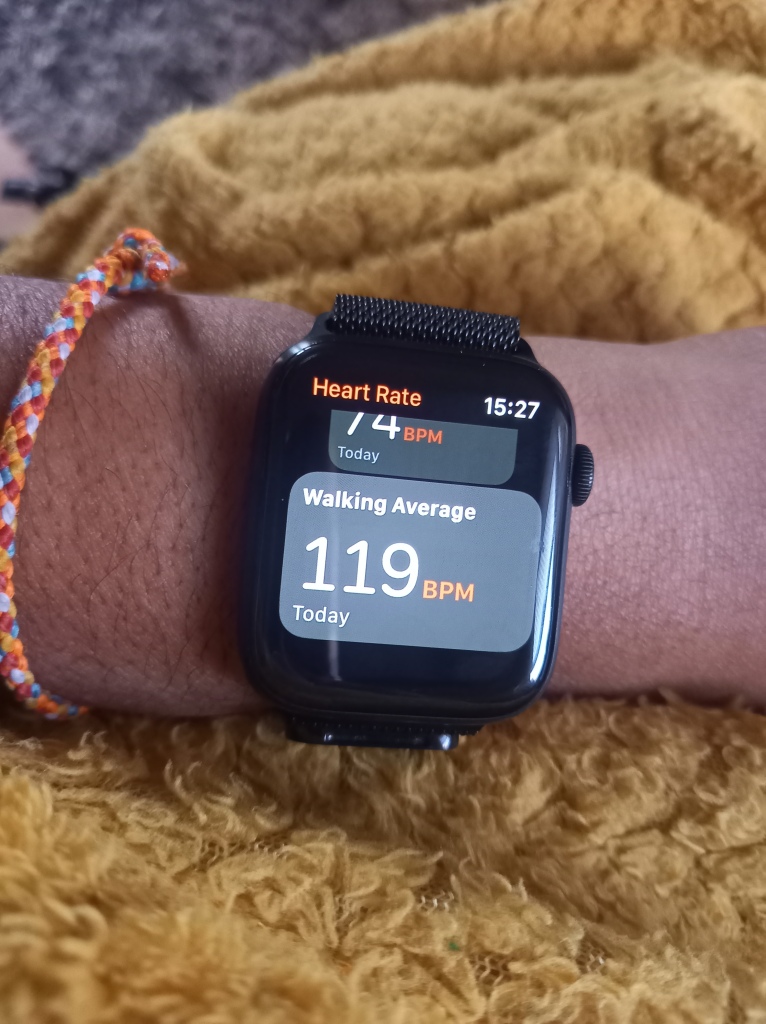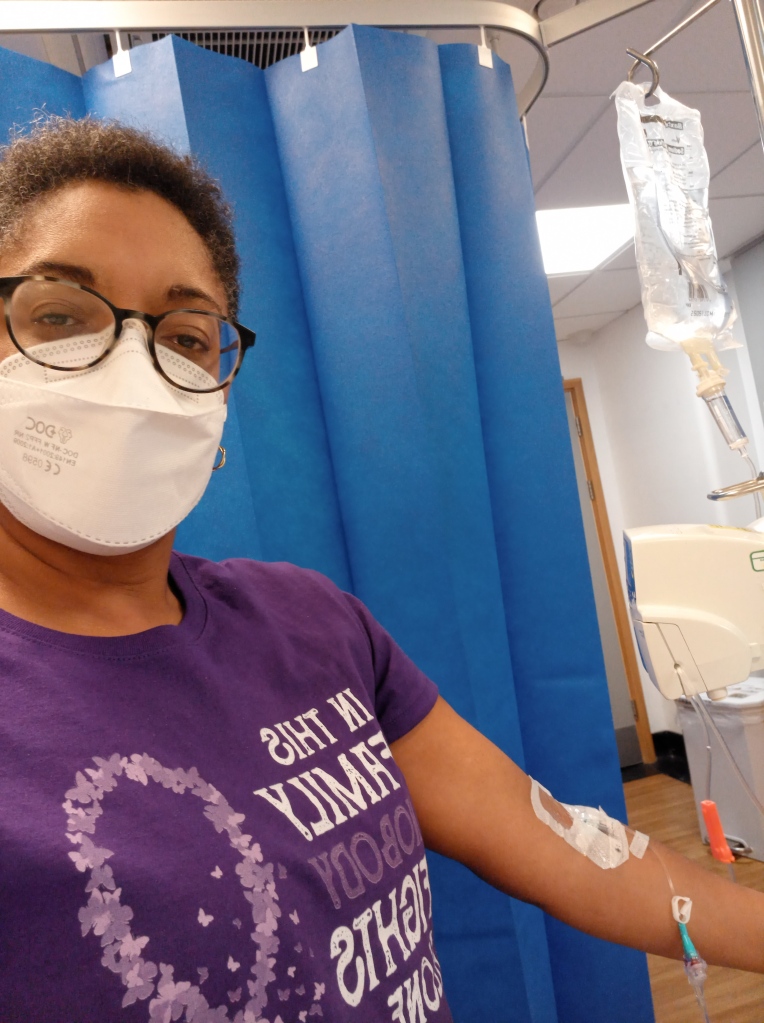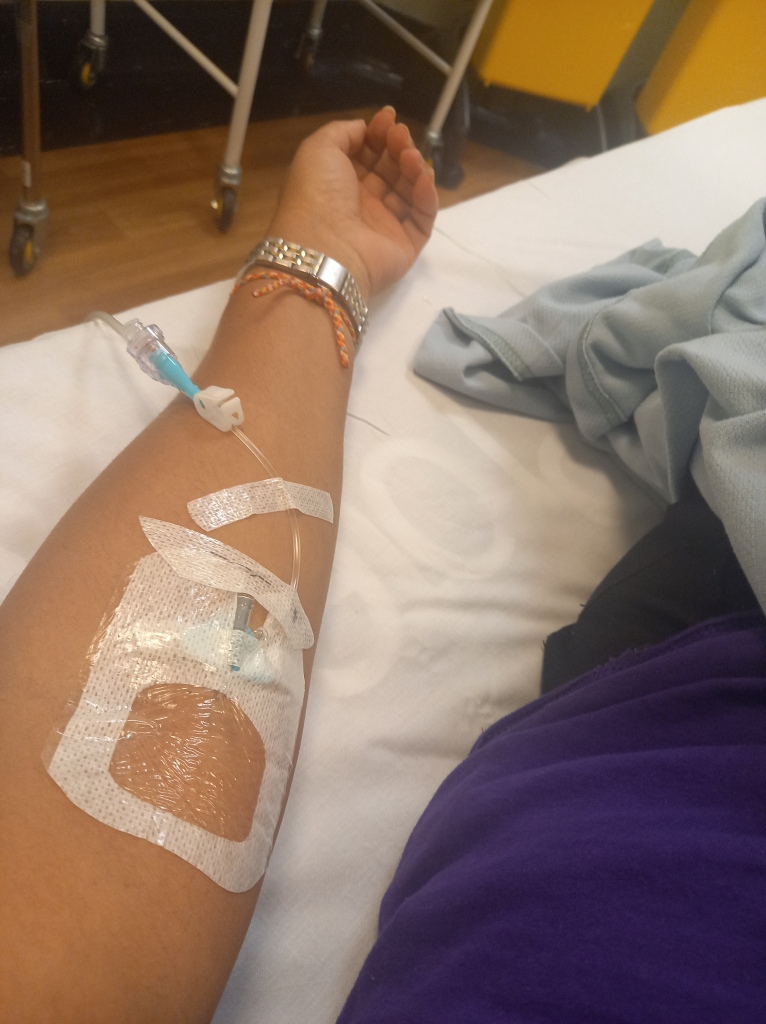I often struggle with weakness and pain in my arms and last month was no exception, it was one of my worst episodes to date. I woke up with intense nerve pain down my right arm. I usually feel either pain or weakness, not both together. Normally I would rest my arm in a sling when it feels weak and heavy, but I couldn’t bend my arm at the elbow without excruciating pain. Just for a moment imagine your dominant arm and hand being useless…a bit like if you had your arm in a cast.
The GP recommended an MRI on my neck as it’s been a while since the disc replacement in my neck has been checked, maybe there was some impingement going on but fortunately although more degeneration, there was no evidence of impingement thank goodness. I couldn’t even lift a bottle of water…I had mild relief by using a cast on my arm to stop me automatically bending my arm.
So, what’s going on, is it Fibro or Neuropathy or both and what does one do? So far, this year is testing me mentally and physically, but I will always push through because what else can one do.
My GP recommended I get some physio for my arm, someone that understands chronic pain but that’s not as easy as it sounds. I was given a list of physios to call in my local area (didn’t want to travel far) to call and arrange to see someone. One physio admitted he has limited experience in dealing with Fibro patients, because flare ups can happen with treatment therefore treatment can be a challenge. Then that got me thinking, it’s not physiotherapy I need it’s Osteopathy. So, what are the main differences between a physiotherapist and an Osteopath?
Physiotherapy helps people affected by injury, illness or disability through movement and exercise, manual therapy, education and advice. They maintain health for people of all ages, helping patients to manage pain and prevent disease (Chartered Society of Physiotherapists).
Osteopathy works with the structure and function of the body. It is based on the principle that the well-being of an individual depends on the skeleton, muscles, ligaments and connective tissues functioning smoothly together. Osteopaths use physical manipulation, stretching and massage
- increase joint mobility,
- relieve muscle tension,
- enhance the blood and nerve supply,
- and to help your body’s own healing mechanisms
My first appointment was an hour long and we spent 50 mins going through my medical conditions and interventions. We talked about my diet and how I pace myself on a daily basis, we talked about movement and looked at muscle groups on the charts that were posted on the wall. I really felt like we covered a lot of ground before he examined me and proceeded with some hands-on therapy on my neck, shoulders and upper back for the last 10 minutes. I have had three 30-minute sessions so far and now have use of my right arm.
The thing is Fibromyalgia is such a complex condition and very unpredictable. Whilst I am having treatment for my arm, my neck, shoulders and upper back are all getting worked on. Finding your own path for treatment of this complex condition is a unique bespoke experience.
Lessons learnt
In my opinion some of the best treatments will usually cost money, Osteopathy is rarely used in the NHS. If you are not in a position to seek out complimentary therapies, I urge you to challenge your health providers regarding their knowledge about Fibromyalgia.



















